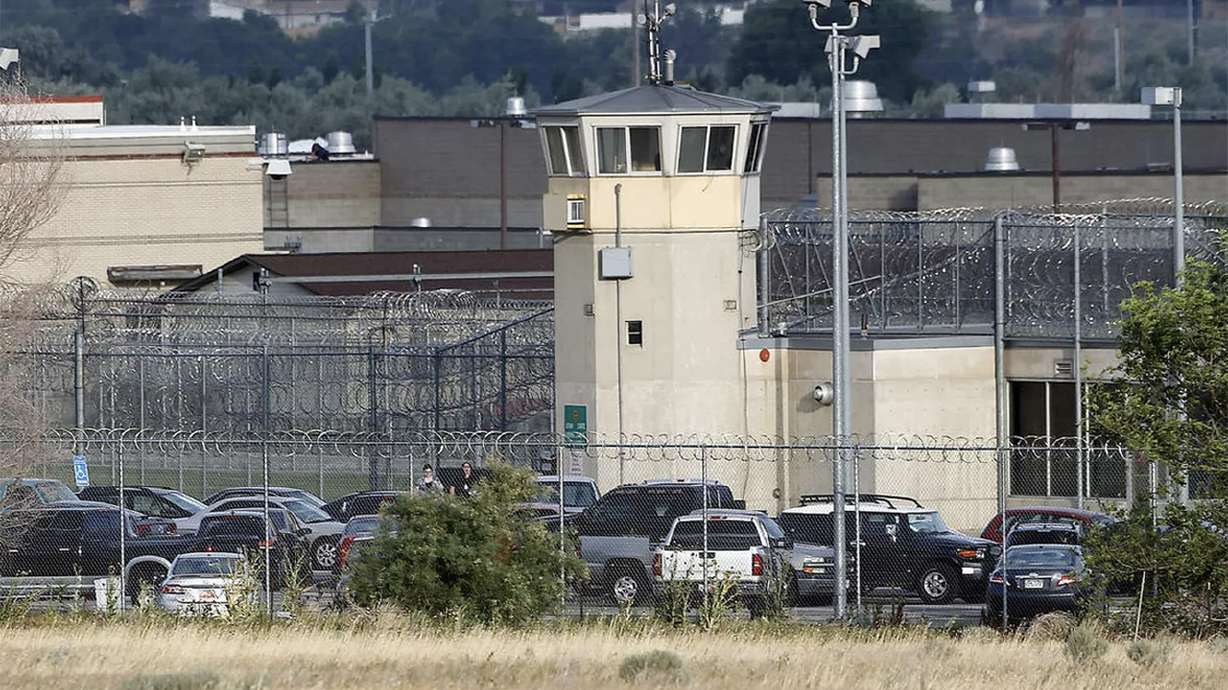Estimated read time: 4-5 minutes
This archived news story is available only for your personal, non-commercial use. Information in the story may be outdated or superseded by additional information. Reading or replaying the story in its archived form does not constitute a republication of the story.
UTAH STATE PRISON — To this day, David Wayne Stoedter still can’t explain what prompted him to murder his business partner and bury him in his backyard.
All Stoedter knows is that he is very sorry for what he did.
“It’s despicable. I have thought about this, and I honestly can’t say what was going through my mind,” Stoedter said in a recording of his recent hearing before the Utah Board of Pardons and Parole. “There was nothing to justify that. He certainly didn’t deserve that.”
On July 5, 2000, Stoedter went to the Sandy home of his business partner, Tibor Brown, and shot him in the head multiple times. After the killing, Stoedter buried Brown in his own backyard.
Brown’s brother reported him missing on July 7, and his body was found two days later.
Stoedter, who was briefly sent to the Utah State Hospital for an evaluation and was found to be suffering from manic depression, pleaded guilty to murder in 2001 and was sentenced to a term of five years to life in the Utah State Prison.
On Feb. 11, Stoedter, now 55, went before the parole board for the first time. Board member Clark Harms conducted the hearing.
Throughout the 37-minute hearing, Stoedter spoke slowly, often pausing between sentences to collect his thoughts. Two themes he kept reiterating were that Brown did nothing to provoke the shooting, and that he was “deeply sorry” to both his former business partner and his family for what he has put them through for the past 20 years.
“It obviously was a very dark day,” he said, recalling the incident.
Stoedter said he and Brown had an argument at Brown’s house earlier that day. But by the time he left the house, it was settled. Still, Stoedter said he wasn’t in a good head space, and went to retrieve his gun.
I truly do not have any answer of what was going through my mind because the end result was so catastrophic.
–David Wayne Stoedter
“To be absolutely honest, the gun was for me. I was fully intending on taking my life that day. We had talked for two hours, and we had kind of worked out everything,” Stoedler said. “I honestly do not know how I could let myself get to that point that where I was that low.”
But rather than take his own life, Stoedter went back to Brown’s house. When he got there, Brown’s brother — also a partner in the business — called. But Stoedter said the brother refused to talk to him.
“It should have never caused this type of reaction,” he said.
Yet, something about being rejected set him off, Stoedter claimed.
“My ego was such that it was something that, you know, I’ve honestly thought long and hard about how I could do something like that, and I truly do not have any answer of what was going through my mind because the end result was so catastrophic,” he told the board.
After killing Brown, Stoedter said he waited two hours before wrapping him in a blue tarp and burying him in the backyard. When spotted by a neighbor, Stoedter said he was burying a dog.
Harms, however, pressed Stoedter for more explanation as to what he was thinking when he pulled the trigger, noting that leaving the house, getting a gun, going back and then waiting two hours to bury someone in the backyard “looks pretty cold and calculated” compared to someone who wants to commit suicide.
“I did not go there to kill Tibor,” Stoedter insisted.
He told Harms he had “extremely poor coping skills” back then, but insisted he has since changed.
“I’m sure you hear this a lot, but I have changed. I’m not that person,” he said.
Harms noted that Stoedter has completed numerous life skills classes since being incarcerated. Stoedter also said he stopped taking medication in 2003 so he could address his problems head-on.
“I’ve learned so much about myself,” he said. “My perspective was so confused and mixed up. And life is a very precious thing. I’ve learned that facing things head-on and just asserting yourself and being involved in a pro-social manner and actually caring about others and helping others, tremendously impacts me in a positive manner.”
The full five-member board will now vote on whether to grant a parole date.









